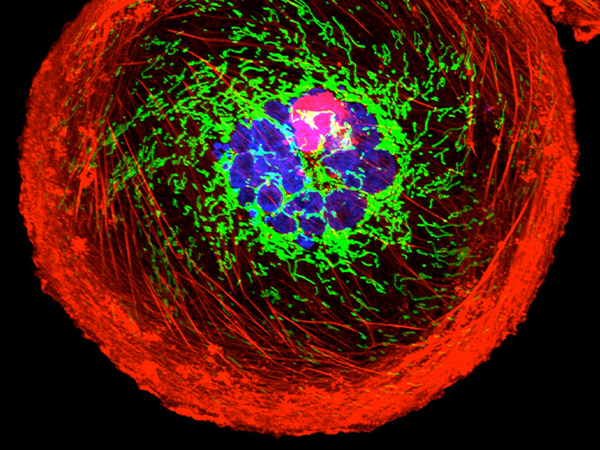Targeting Triple-negative Breast Cancer
The FDA has approved a type of molecularly targeted therapeutic called an antibody-drug conjugate for the treatment of metastatic triple-negative breast cancer.

The U.S. Food and Drug Administration (FDA) has approved a new molecularly targeted therapeutic called sacituzumab govitecan-hziy (Trodelvy) for treating adults who have metastatic triple-negative breast cancer that has progressed despite the patient having tried at least two other treatment regimens.
More than 276,000 U.S. women will be newly diagnosed with breast cancer in 2020, according to the National Cancer Institute. About 12 percent of these women will have a type of breast cancer called triple-negative breast cancer, which means that their cancer will test negative for estrogen and progesterone hormone receptors and the protein HER2.
Triple-negative breast cancer is an aggressive type of breast cancer. Patients often have poor outcomes, in part because there have been few advances in treatment. For patients with metastatic disease, cytotoxic chemotherapeutics were the only systemic treatment options until recently. Even with such treatments, the median overall survival is estimated to be less than 18 months.
Sacituzumab govitecan-hziy, which was known as IMMU-132 during development, is a type of molecularly targeted therapy called an antibody-drug conjugate. It targets a protein called Trop-2, which researchers have detected on a high proportion of triple-negative breast cancers. The new antibody-drug conjugate comprises a Trop-2–targeted antibody attached to a cytotoxic agent, SN-38, by a linker. When the antibody attaches to Trop-2 on the surface of triple-negative breast cancer cells, the antibody-drug conjugate is internalized by the cells. This leads to SN-38 being released from the linker and antibody. Once free, the SN-38 is toxic to the cancer cells, which ultimately die.
The approval of sacituzumab govitecan-hziy was based on results from the IMMU-132-01 phase I/II clinical trial, which were published in The New England Journal of Medicine. The results showed that 33.3 percent of the 108 patients with metastatic triple-negative breast cancer enrolled on the trial who received sacituzumab govitecan-hziy had partial or complete tumor shrinkage and that the median duration of tumor shrinkage was 7.7 months.
The new treatment was not without side effects, however, with 32 percent of patients having serious adverse events, including severe neutropenia (dangerously low levels of a type of immune cell called a neutrophil) and severe diarrhea. Thus, the FDA approved sacituzumab govitecan-hziy with a boxed warning to advise health care providers to monitor patients receiving the antibody-drug conjugate for severe neutropenia and severe diarrhea.
The FDA approval was rendered on April 22, 2020.
